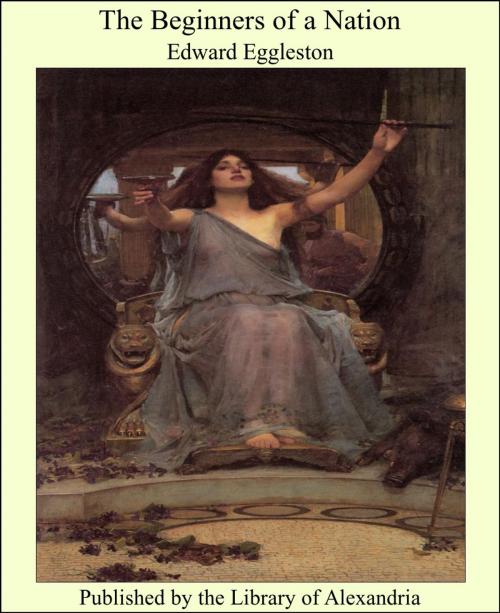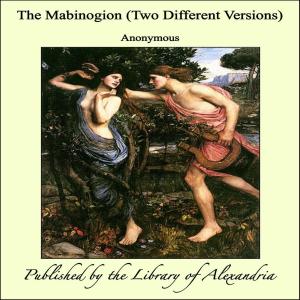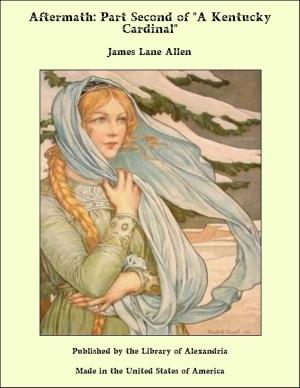The Beginners of a Nation
Nonfiction, Religion & Spirituality, New Age, History, Fiction & Literature| Author: | Edward Eggleston | ISBN: | 9781465528230 |
| Publisher: | Library of Alexandria | Publication: | March 8, 2015 |
| Imprint: | Language: | English |
| Author: | Edward Eggleston |
| ISBN: | 9781465528230 |
| Publisher: | Library of Alexandria |
| Publication: | March 8, 2015 |
| Imprint: | |
| Language: | English |
In this work, brought to completion after many years of patient research, I have sought to trace from their source the various and often complex movements that resulted in the early English settlements in America, and in the evolution of a great nation with English speech and traditions. It has been my aim to make these pages reflect the character of the age in which the English colonies were begun, and the traits of the colonists, and to bring into relief the social, political, intellectual, and religious forces that promoted emigration. This does not pretend to be the usual account of all the events attending early colonization; it is rather a history in which the succession of cause and effect is the main topic—a history of the dynamics of colony-planting in the first half of the seventeenth century. Who were the beginners of English life in America? What propulsions sent them for refuge to a wilderness? What visions beckoned them to undertake the founding of new states? What manner of men were their leaders? And what is the story of their hopes, their experiments, and their disappointments? These are the questions I have tried to answer. The founders of the little settlements that had the unexpected fortune to expand into an empire I have not been able to treat Otherwise than unreverently. Here are no forefathers or foremOthers, but simply English men and women of the seventeenth century, with the faults and fanaticisms as well as the virtues of their age. I have disregarded that convention which makes it obligatory for a writer of American history to explain that intolerance in the first settlers was not just like Other intolerance, and that their cruelty and injustice were justifiable under the circumstances. This walking backward to throw a mantle over the nakedness of ancestors may be admirable as an example of diluvian piety, but it is none the less reprehensible in the writing of history. While the present work is complete in itself, it is also part of a larger enterprise, as the half-title indicates. In January, 1880, I began to make studies for a History of Life in the United States. For the last sixteen or seventeen years by far the greater part of my time has been given to researches on the culture history of the United States in the period of English domination, that "good old colony time" about which we have had more sentiment than information. As year after year was consumed in this toilsome preparation, the magnitude of the task became apparent, and I began to feel the fear for my work so felicitously expressed by Ralegh, "that the darkness of age and death would have covered over both it and me before the performance." It seemed better, therefore, to redeem from the chance of such mishap a portion of my work, by completing this most difficult part of the task, in order that when, early or late, the inevitable night shall fall, the results of my labor, such as they are, may not be wholly covered over by the darkness. There is always difference of opinion in regard to the comparative fullness with which the several portions of a historical narrative should be treated, and I can not hope to escape criticism on this point. I have related some events with what will be considered disproportionate amplitude of detail. But the distinctive purpose of this work is to give an insight into the life and character of the people, and there are details that make the reader feel the very spirit and manner of the time. It is better to let the age disclose itself in action; it is only by ingenious eavesdropping and peeps through keyholes that we can win this kind of knowledge from the past. Literary considerations should have some weight in deciding how fully an episode shall be treated, unless the historian is content to perform the homely service of a purveyor of the crude ore of knowledge. I have sought to make this "a work of art as well as of historical science," to borrow a phrase from Augustin Thierry. Some omissions in this volume will be explained when its successors appear
In this work, brought to completion after many years of patient research, I have sought to trace from their source the various and often complex movements that resulted in the early English settlements in America, and in the evolution of a great nation with English speech and traditions. It has been my aim to make these pages reflect the character of the age in which the English colonies were begun, and the traits of the colonists, and to bring into relief the social, political, intellectual, and religious forces that promoted emigration. This does not pretend to be the usual account of all the events attending early colonization; it is rather a history in which the succession of cause and effect is the main topic—a history of the dynamics of colony-planting in the first half of the seventeenth century. Who were the beginners of English life in America? What propulsions sent them for refuge to a wilderness? What visions beckoned them to undertake the founding of new states? What manner of men were their leaders? And what is the story of their hopes, their experiments, and their disappointments? These are the questions I have tried to answer. The founders of the little settlements that had the unexpected fortune to expand into an empire I have not been able to treat Otherwise than unreverently. Here are no forefathers or foremOthers, but simply English men and women of the seventeenth century, with the faults and fanaticisms as well as the virtues of their age. I have disregarded that convention which makes it obligatory for a writer of American history to explain that intolerance in the first settlers was not just like Other intolerance, and that their cruelty and injustice were justifiable under the circumstances. This walking backward to throw a mantle over the nakedness of ancestors may be admirable as an example of diluvian piety, but it is none the less reprehensible in the writing of history. While the present work is complete in itself, it is also part of a larger enterprise, as the half-title indicates. In January, 1880, I began to make studies for a History of Life in the United States. For the last sixteen or seventeen years by far the greater part of my time has been given to researches on the culture history of the United States in the period of English domination, that "good old colony time" about which we have had more sentiment than information. As year after year was consumed in this toilsome preparation, the magnitude of the task became apparent, and I began to feel the fear for my work so felicitously expressed by Ralegh, "that the darkness of age and death would have covered over both it and me before the performance." It seemed better, therefore, to redeem from the chance of such mishap a portion of my work, by completing this most difficult part of the task, in order that when, early or late, the inevitable night shall fall, the results of my labor, such as they are, may not be wholly covered over by the darkness. There is always difference of opinion in regard to the comparative fullness with which the several portions of a historical narrative should be treated, and I can not hope to escape criticism on this point. I have related some events with what will be considered disproportionate amplitude of detail. But the distinctive purpose of this work is to give an insight into the life and character of the people, and there are details that make the reader feel the very spirit and manner of the time. It is better to let the age disclose itself in action; it is only by ingenious eavesdropping and peeps through keyholes that we can win this kind of knowledge from the past. Literary considerations should have some weight in deciding how fully an episode shall be treated, unless the historian is content to perform the homely service of a purveyor of the crude ore of knowledge. I have sought to make this "a work of art as well as of historical science," to borrow a phrase from Augustin Thierry. Some omissions in this volume will be explained when its successors appear















